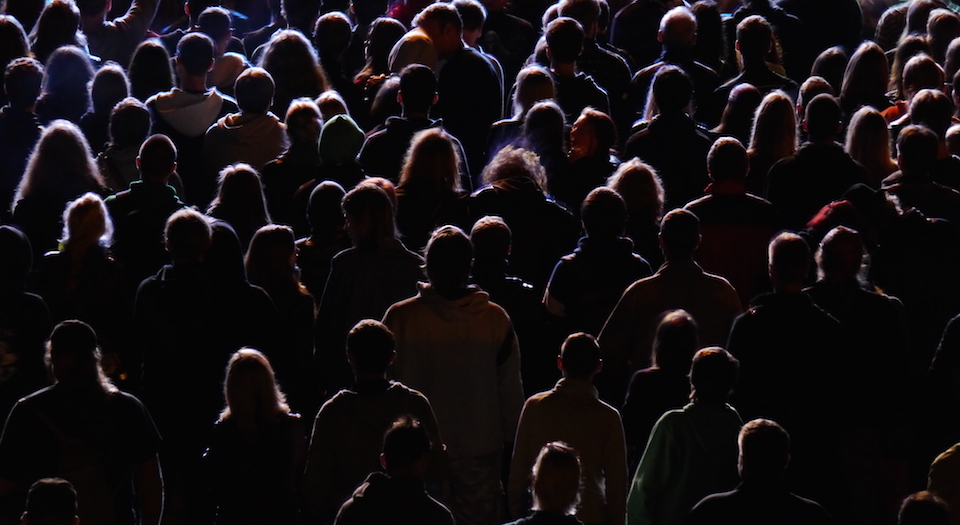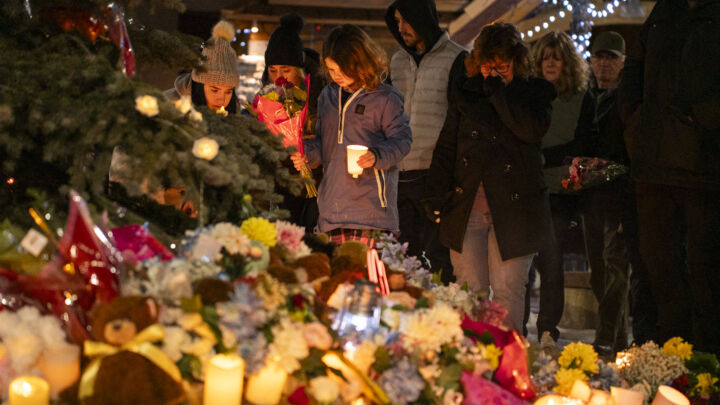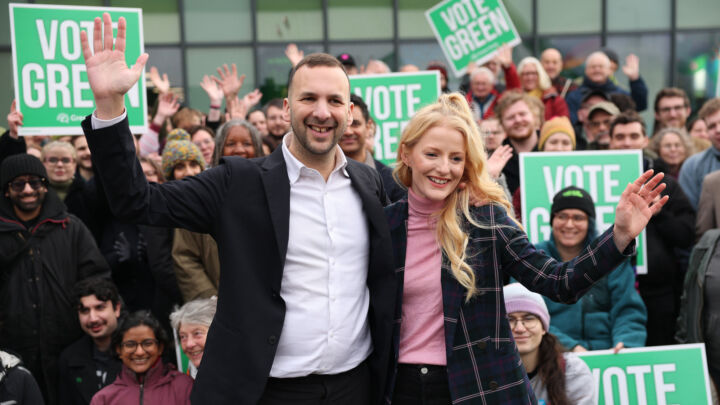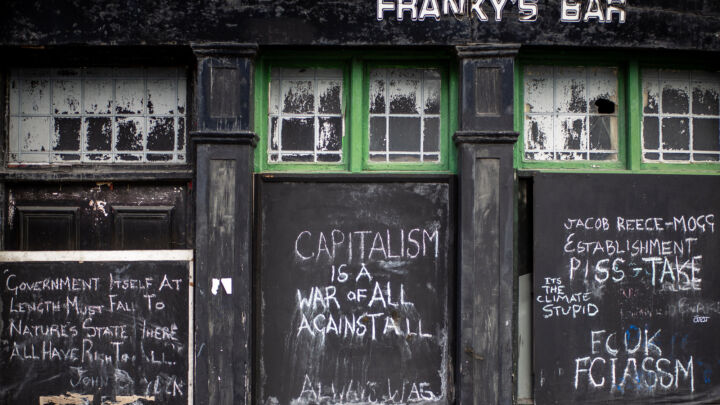Let’s celebrate the creative power of democracy
100 years on, the elites still distrust the people. They are wrong to.

Want unlimited, ad-free access? Become a spiked supporter.
A hundred years ago, the British parliament passed the Representation of the People Act, granting working-class men and certain women over the age of 30 the right to vote. In 1918 it had become clear to most that the people could no longer be denied the vote. In most Western societies it was recognised that the consent of the people, expressed through elections, was essential for legitimising political authority. However, it was one thing to enfranchise the people – it was another to know how to manage this mass electorate. To this day, mistrust of the electorate is a key feature of political life. Though it is rarely acknowledged, in the eyes of the political elites an enfranchised public is a problem to be kept in check.
It is important to note that until the late 19th century, the term ‘democrat’ tended to have negative connotations. Even the framers of the American Constitution, whose preamble refers to ‘We the People’ who will form a ‘more perfect Union’, looked suspiciously upon the word ‘democracy’. Fears over enfranchising the people were even more profound in Britain and Europe. The political classes often claimed that ordinary people were far too immature to exercise the right to vote responsibly. This sentiment was clearly expressed by the German-born Italian sociologist Robert Michels in his 1911 study, Political Parties. He said:
‘The objective immaturity of the mass is not a mere transitory phenomenon which will disappear with the progress of democratisation… On the contrary, it derives from the very nature of the mass as mass, [which] suffers from an incurable incompetence.’
Members of the elite rarely questioned this assertion, this idea that people lacked independence of thought and political maturity. As far as they were concerned, the people could not be trusted to play a responsible role in public life.
In the early 20th century, even as the right to vote was institutionalised, the dominant sentiment in the political class was that although the public’s opinion could no longer be ignored, it carried little merit. Typically, the public’s participation in political life was treated as an inconvenience, one that had a destructive potential and which therefore had to be managed and tamed by the ruling elites. The then president of Harvard University, Abbott Lawrence Lowell, gave some lectures on public opinion in 1909 which expressed well this disdain for the public. His editor responded by praising Lowell for seeing ‘more clearly than others’ that ‘the future of popular government would likely depend on how well the role of public opinion was defined in relation to its capabilities’. Apparently this meant not demanding that the ‘mass electorate do more than it was capable of doing… [T]o ask it to answer questions beyond its competence would be as unwise as to ignore its opinions altogether.’ In short, the true role of the electorate was to listen to the ‘experts’ and do as instructed.
Unease towards the electoral behaviour of the public was strikingly expressed through the negative use of the phrase ‘the people’. The passing of the Representation of the People Act notwithstanding, the term ‘the people’ was often linked with the idea of moral failing or thoughtlessness. From 1918 right through to today, observers have used it interchangeably with phrases like the masses, the multitude, the crowd, even the mob. Unlike the elites, the masses were said to be interested only in their immediate and short-term needs. They were seen as overly emotional and rarely able to come to reasoned conclusions. Since 1918 the people’s views have often been discounted on the basis that ordinary people lack the moral and intellectual resources to deal with complex political issues. Back in Ancient Greece, when the oligarchy wanted to discredit the demos, it would say that the people were easy prey for demagogues. That idea has survived into the modern era – so in the decades after 1918, in the interwar years, the people were regularly blamed for the rise of totalitarian leaders.
The idea that the ‘mass’ cannot think for itself is expressed in various ways. One way the people are delegitimised is through the argument that their thoughts and behaviour are controlled by the media, by religion, by prejudice, by advertisers, by their peers, or by their own fears. The conviction that Brexit was a product of people’s anti-immigrant prejudices and xenophobic fears is only the latest expression of a very real phobia: the elite’s fear of the behaviour of ordinary people.
Those who have genuine democratic sentiments are often tempted to respond to this devaluation of the people by romanticising the people; by attributing to it all kinds of positive qualities. Such a reaction is entirely understandable, but it does little to advance the cause of democracy. We should trust the electorate, and affirm its capacity for reason, but we should not uncritically idealise it. Why? Because the people are not gods. They make mistakes and support causes and objectives that can be damaging to their interests. Democratic decision-making doesn’t come with a guarantee that the right course of action will be taken.
We should remember that the transformation of individuals who inhabit a common physical space into a democratic citizenry doesn’t occur naturally. What is referred to as The People is not a product of nature – it’s a product of political experience, education, and struggle.
Most of the time, those of us who make up the people exist as individuals in a relatively depoliticised state. Our potential for democratic citizenship tends only to be realised in response to specific situations. Important battles were fought and lessons learned before the people of America and France overthrew the old regimes and came to regard themselves as citizens. These momentous events were assisted by the emergence of new ideals during the Enlightenment. The record of history, especially since the 18th century, shows that from time to time, in special circumstances, the people discover their creative power. Though relatively rare, such episodes have played a decisive role in developing and humanising public life. And yet some of these incredibly important contributions to human development, such as the ending of slavery, are often followed by setbacks or political stasis.
The political philosopher Hannah Arendt feared the behaviour of people in certain situations, such as the anti-Semitic agitation in France during the infamous trial of Alfred Dreyfus in the 1890s or during the Nazi era in Germany. But she still affirmed the potential of the people for political creativity. Her populism was informed by an understanding that, despite occasional setbacks, on those rare occasions when people get their act together they sometimes provide humanity with a legacy that can enthuse and educate future generations. Two examples in particular inspired her: the American Revolution and the failed Hungarian Revolution of 1956. In different ways, both experiences showed the transformative potential of people in action. No doubt she would also have interpreted British people’s vote for Brexit as another example of a people attempting to create a new legacy for future generations. So long as people are committed to a democratic ethos, there is always the hope that wrongs can be put right.
The past hundred years show us that the constitution of the people as a confident, future-oriented force is the best, and in fact only guarantor of democracy. Of course the people are not always right. In many circumstances we become confused. Often, experts can help us to understand difficult questions, particularly in the domain of science. And education has an important role to play in fostering a climate of democratic debate. The quality of leadership in society can also help to realise the creative potential of democracy. But in the end, it is the people and their maturity that serve as the most reliable force for securing the wellbeing of future generations. They and they alone can protect and expand the democratic future.
Frank Furedi is a sociologist and commentator. His latest book, Populism And The Culture Wars In Europe: The Conflict Of Values Between Hungary and the EU, is published by Routledge. (Buy this book from Amazon(UK).)
You’ve hit your monthly free article limit.
Support spiked and get unlimited access.
Support spiked and get unlimited access
spiked is funded by readers like you. Only 0.1% of regular readers currently support us. If just 1% did, we could grow our team and step up the fight for free speech and democracy.
Become a spiked supporter and enjoy unlimited, ad-free access, bonus content and exclusive events – while helping to keep independent journalism alive.
Monthly support makes the biggest difference. Thank you.











Comments
Want to join the conversation?
Only spiked supporters and patrons, who donate regularly to us, can comment on our articles.